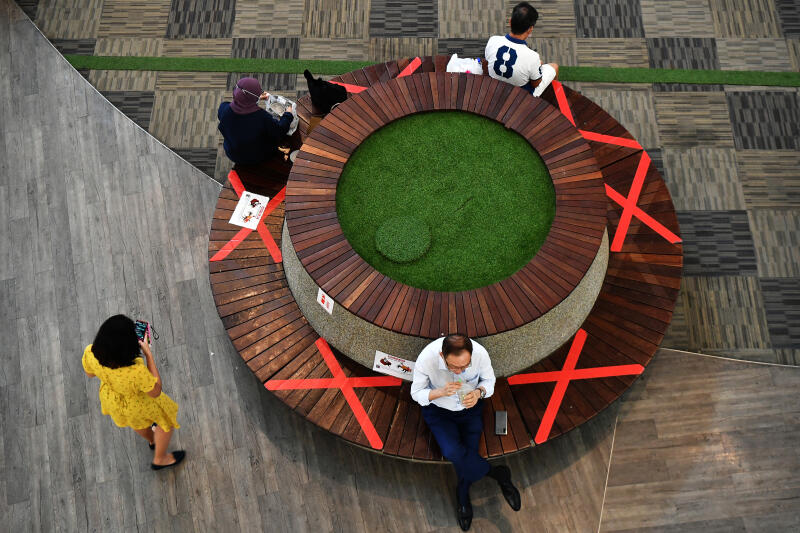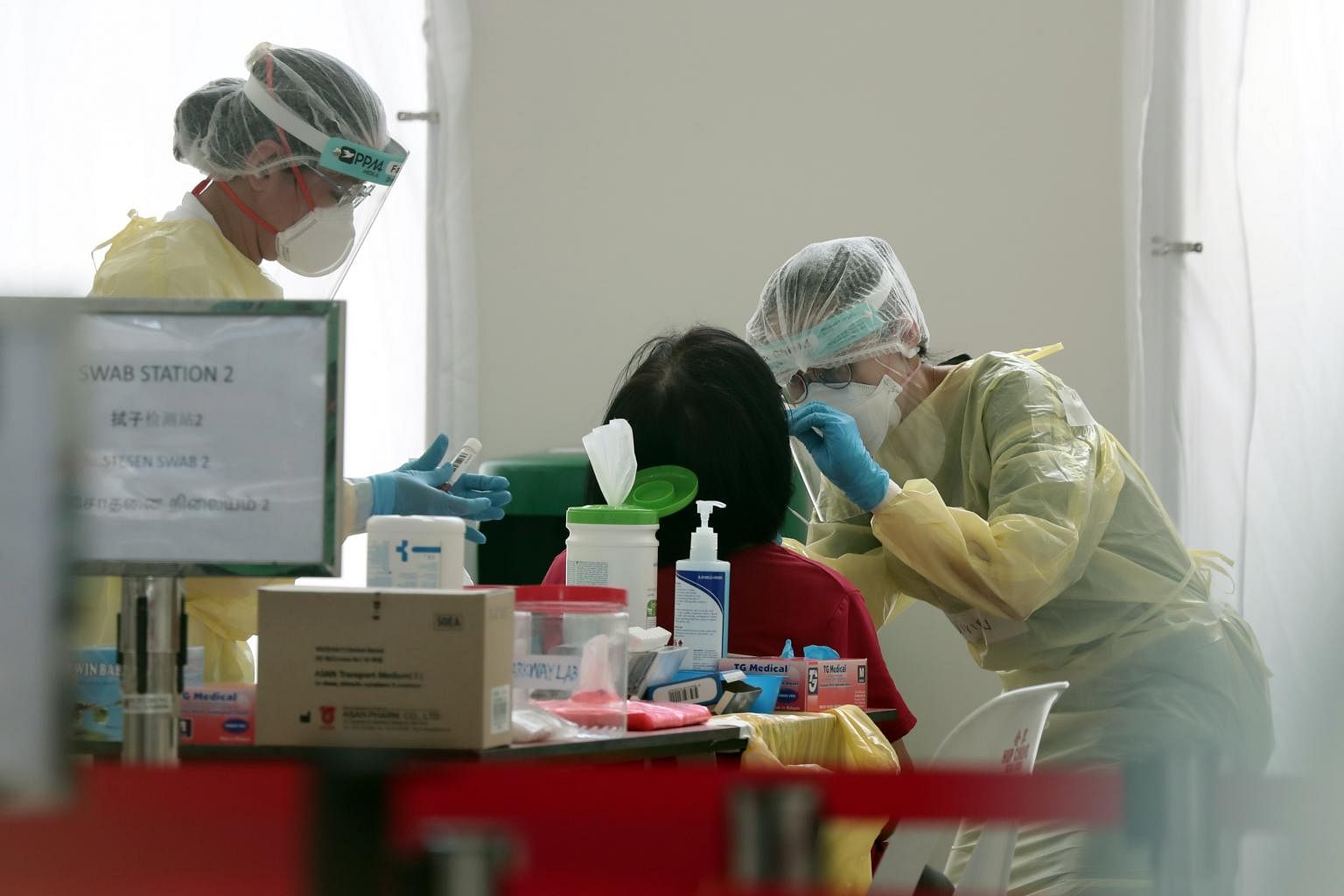First case of likely Covid-19 reinfection in S’pore: Experts say immunity wanes with time
Sign up now: Get ST's newsletters delivered to your inbox

People should follow the current safe management measures to prevent reinfections, say experts.
PHOTO: ST FILE
SINGAPORE - People who have recovered from Covid-19 can get reinfected with the virus, as immunity wanes with time, even if they will likely be protected for a time, experts say.
Those who recover from the disease would typically mount a neutralising antibody response for a period of time, which generally protects from reinfection, said Professor Teo Yik Ying, dean of the National University of Singapore's (NUS) Saw Swee Hock School of Public Health.
Neutralising antibodies are so called because they bind to specific, important sites of the virus, which prevents the coronavirus from infecting a patient's cells.
"However, this immune response has been shown to wane with time, and the previous reports of reinfections in South Korea, Hong Kong, and other parts of the world typically happen after three months of the first infection," noted Prof Teo.
He was responding to queries from The Straits Times, following news on Saturday (Feb 6) that the first case of likely Covid-19 reinfection in Singapore had been detected.
The Health Ministry (MOH) said the patient, a 28-year-old male Bangladesh national, was confirmed to have Covid-19 infection on April 12 last year and subsequently recovered. He consistently tested negative for the infection since June.
But on Jan 25 this year, his test result came back positive for Covid-19 infection, and he was isolated. Numerous repeat tests were also positive for the virus.
He was identified from rostered monitoring testing conducted as part of the MOH's surveillance of recovered workers to monitor their post-infection immunity.
He had reported feeling unwell on Jan 22 and 23, but was otherwise asymptomatic.
Immune response
Dr Shawn Vasoo, clinical director of the National Centre for Infectious Diseases (NCID), said data has shown that immunity from natural infection can last at least six months, perhaps longer.
This immunity is conferred by the neutralising antibodies the body makes after infection, he noted.
But this is just one element of the human immune system. Another element, cellular immunity, arises from special immune cells called lymphocytes.
These cells recognise Sars-CoV-2 - as the virus causing Covid-19 is called - and can prevent infection.
He said those with who were immunosuppressed - such as patients who are taking medications which depress their immune system - or had only a mild first infection may have a shorter-lasting immunity.
But experts say that knowledge about the coronavirus, and how the immune system responds to it, is an evolving area. Sars-CoV-2 had been unknown to humanity before it first surfaced in China in December 2019.
Prof Dale Fisher, from the department of medicine at the NUS Yong Loo Lin School of Medicine, said: "We don't know how completely and how long the immunity after infection lasts. We have seen dozens of proven reinfections globally and many more suspected, but it remains very rare. We do not know if it will become less rare as time progresses."

Another expert, Associate Professor Alex Cook at the NUS Saw Swee Hock School of Public Health, said that not only does antibody response change over time, but it also differs from person to person.
"Some people may have less of a response than others, which may leave them at greater risk of reinfection," he explained.
Moreover, the presence of antibodies does not guarantee that the body will fight off infection as well, added Prof Cook, who is the vice-dean for research and domain leader for biostatistics and modelling at the school.
That is why people who have recovered from Covid-19 are not considered immune to it.
Different strains
Investigations revealed that the Bangladeshi worker had been reinfected with coronavirus strains currently circulating in the region and not the new variants of concern, said Dr Vasoo.
The coronavirus variants of concern include those that originated in Britain, Brazil and South Africa, as they are believed to be more contagious.
Prof Teo of the NUS Saw Swee Hock School of Public Health noted that recovered Covid-19 patients can get reinfected with the coronavirus, regardless of new strain types.
He cited earlier reports of reinfections in South Korea and Hong Kong in mid-2020, noting that those cases had cropped up before the emergence of the new strains from Britain or South Africa.
Preventing reinfections
People should follow the current safe management measures to prevent reinfections, the experts advised.
"People who have been infected may wish to continue to take the regular precautions such as frequent hand washing that the rest of us do," he said.
For the general public, Prof Cook said the risk remains low due to the safe management measures and low community transmission risks.
Agreeing, Prof Fisher, who is also a senior consultant for the division of infectious diseases at the National University Hospital, and chair of the World Health Organisation's Global Outbreak and Alert and Response Network, said: "Until we have more answers, people should continue to follow the same rules of distancing, mask wearing and not being a part of large gatherings.
"It's another reason why we have still recommended vaccination even if someone has been infected before."
Dr Vasoo said this reported reinfection case, as with the other reported cases in the world, will not substantially change the core strategy to contain Covid-19 in Singapore, which primarily involves prevention by safe distancing, mask wearing, vaccination and early detection and isolation via testing.
"We will need to continue to be vigilant," he said.


